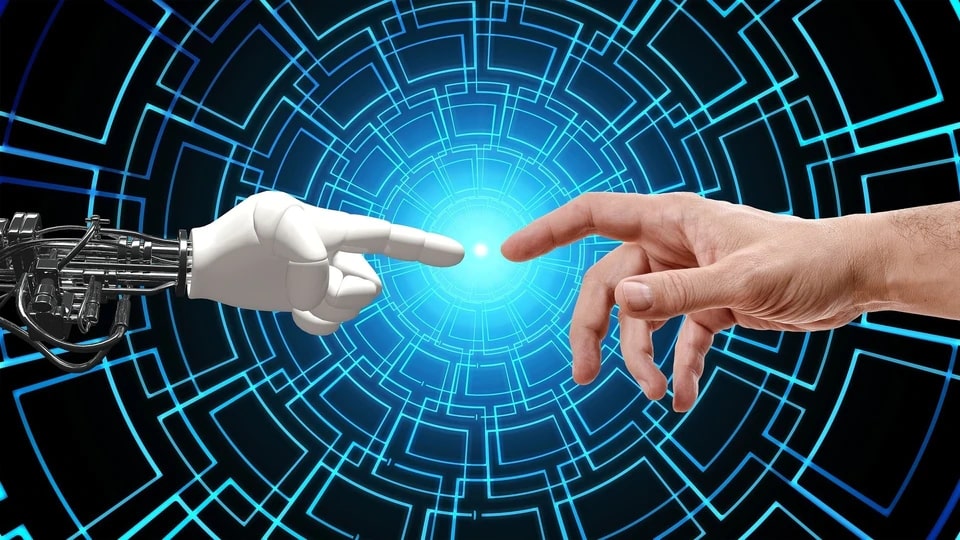The Future of Artificial Intelligence: A Comprehensive Look at How AI Will Shape Our World

Artificial Intelligence (AI) is the future of technology. It’s rapidly changing the way we live, work, and interact with the world around us. In this article, we will explore the future of artificial intelligence and its impact on various aspects of our lives. We will cover everything from how AI is transforming industries to the potential risks and ethical concerns associated with its development. This article is brought to you by Teach Diary, your go-to source for everything related to technology.
Introduction
- What is Artificial Intelligence?
- Brief History of AI
- Why is AI important?
Artificial Intelligence is a field of computer science that deals with the development of intelligent machines that can perform tasks that typically require human intelligence. It involves developing algorithms and computer programs that can learn from data and make predictions or decisions based on that data. AI has been around for several decades, but recent advancements in computing power and data analytics have made it possible to develop more sophisticated AI systems than ever before.
Applications of AI
- Healthcare
- Finance
- Education
- Transportation
- Manufacturing
- Entertainment
AI is being used in various industries to improve efficiency, productivity, and decision-making. In healthcare, AI is being used for early disease detection, personalized treatment plans, and drug discovery. In finance, AI is being used for fraud detection, credit scoring, and risk assessment. In education, AI is being used for personalized learning and student engagement. In transportation, AI is being used for self-driving cars, traffic management, and logistics optimization. In manufacturing, AI is being used for predictive maintenance, quality control, and supply chain management. In entertainment, AI is being used for content creation, recommendation engines, and virtual assistants.
The Future of AI
- Advancements in Deep Learning
- Internet of Things (IoT)
- Robotics
- Augmented Reality (AR) and Virtual Reality (VR)
- Quantum Computing
The future of AI is exciting and holds endless possibilities. Advancements in deep learning, a subfield of AI, are making it possible to develop more accurate and sophisticated AI systems. The internet of things (IoT) is creating a vast network of interconnected devices that generate massive amounts of data, which can be used to train AI algorithms. Robotics is making it possible to develop intelligent machines that can perform tasks that are dangerous or impossible for humans. Augmented reality (AR) and virtual reality (VR) are creating immersive experiences that blur the line between the physical and digital worlds. Quantum computing is making it possible to solve complex problems that are beyond the capabilities of classical computers.
Risks and Ethical Concerns
- Job Displacement
- Bias and Discrimination
- Privacy and Security
- Autonomous Weapons
Despite the many benefits of AI, there are also potential risks and ethical concerns associated with its development. Job displacement is one of the most significant risks, as AI has the potential to automate many jobs that are currently performed by humans. Bias and discrimination are also concerns, as AI algorithms can reflect the biases of their developers or the data they were trained on. Privacy and security are also issues, as AI systems can collect and store vast amounts of personal data. Finally, autonomous weapons, which are AI-powered weapons that can make decisions without human intervention, raise ethical concerns about the use of AI in warfare.
Conclusion
AI is rapidly changing the world as we know it. From healthcare to finance, education to transportation, and manufacturing to entertainment, AI is being used to improve efficiency, productivity, and decision-making. As AI continues to evolve and become more sophisticated, it will undoubtedly have a significant impact on our lives. However, we must also be mindful of the potential risks and ethical concerns associated with its development. It is crucial that we continue to monitor the development of AI and implement policies and regulations that promote its responsible and ethical use. By doing so, we can ensure that AI continues to benefit humanity while minimizing its potential risks and drawbacks.
FAQs
- What is Artificial Intelligence?
Artificial Intelligence is a field of computer science that deals with the development of intelligent machines that can perform tasks that typically require human intelligence.
- What are the applications of AI?
AI is being used in various industries, including healthcare, finance, education, transportation, manufacturing, and entertainment.
- What is the future of AI?
The future of AI is exciting and holds endless possibilities. Advancements in deep learning, IoT, robotics, AR/VR, and quantum computing are making it possible to develop more sophisticated AI systems.
- What are the risks associated with AI?
The risks associated with AI include job displacement, bias and discrimination, privacy and security, and the development of autonomous weapons.
- How can we promote responsible and ethical use of AI?
We can promote responsible and ethical use of AI by implementing policies and regulations that address the potential risks and ethical concerns associated with its development.


